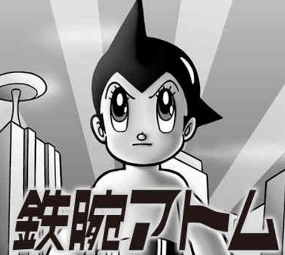
PDF version of course syllabus: http://ww2.coastal.edu/rgreen/15_SPRING_RELG_491_01_rgreen.pdf
 |
Course Description: |
This course is a survey of modern Japanese literature and visual culture since the Meiji Restoration (1868). It focuses on constructions of identities within historical contexts. Our objective is to analyze ways in which writers and artists have positioned their subjects and re-imagined culture to create particular portrayals. The class examines a selection of shōsetsu (the Japanese novel) of Natsume Soseki, Kawabata Yasunari, Mishima Yukio, Murakami Haruki, and Ogawa Yōko, films of Miyazaki Hayao, and important anime.
The course promotes critical methodologies and interdisciplinary or comparative studies, combining, for example, literature with film, visual culture, gender studies, cultural history, Buddhist and Shintō studies, and so forth. Students are encouraged to work closely with the instructor and simultaneously with professors in other programs and fields to create term papers and presentations for the Celebration of Inquiry (CCU's in-house academic conference). Professors working in digital humanities should be particularly valuable resources.
Upon completion of this course, students will have:
1. Natsume Soseki. Kokoro, Gateway Editions, ISBN: 0895267152
2. Kawabata Yasunari. Thousand Cranes, Vintage, ISBN: 0679762655
3. Mishima Yukio. The Temple of the Golden Pavilion, Vintage, ISBN: 0679752706.
4. Murakami Haruki. Hard-Boiled Wonderland and the End of the World, Vintage, ISBN: 0679743464
5. Ogawa Yōko. The Diving Pool: Three Novellas, Picador, ISBN: 0312426836
6. Tsutsui, William M. Japanese Popular Culture and Globalization. Association for Asian Studies, ISBN:
9780924304620
Required films and anime
Required Assignments and Grading
1. There will be two tests. Each test is worth 30% of your final grade for the term. On the two quizzes, you will be asked to provide short-essay answers to between ten and twenty questions. Some questions will be on the readings and anime, others on the lectures.
2. Completion of the term paper or presentation is worth 30% of the grade for the term. The term paper should be a seven-page academic essay. A presentation must be the academic equivalent of this. If you are doing a presentation, you must do it during the Celebration of Inquiry, preferably as a part of our group, April 12-14. The deadline to submit a Celebration of Inquiry proposal is February 11. So, if you plan to do a presentation, you must have it approved by the instructor by the class deadline: Monday, February 8.
For those writing a paper, it must be at least seven pages in length to be accepted for a grade, double-spaced in 12-point type, in a font such asTimes New Roman or Courier New. Chicago or MLA styles are acceptable. You must use and fully cite at least two reputable academic sources. Web sources are not acceptable unless you can show they are academically sound, such as an online peer-reviewed academic journal. That is to say, you may use any web source that supports your thesis, but you must also use at least two academic sources. If you prefer web research, consider using jstor, available through the library.
3. There will be an oral comprehensive final exam. It will cover the content of the anime movie Metropolis as related to what we covered this term. That is to say, students must attend the screening of Metropolis during the scheduled exam time Friday, April 29 at 1:30 in our regular classroom and afterward, successfully discuss its content in terms of constructions of religious and historical identity in Japan since the Meiji Period. The final exam is worth 10% of the grade for the semester.
Extra Credit: There will be several chances throughout the term to earn extra credit by attending a film or talk scheduled outside of class time. Each of these chances is worth an extra five percent on one of the tests. Announcements of these opportunities will be made in class.
Summary of grading:
Test 1 = 30%
Test 2 = 30%
Term Project = 30%
Final Exam = 10%
Based on this, students will earn a letter grade for the term according to the following system:
A = 91 - 100%
B+ = 88 - 90%
B = 81 - 87%
C+ = 78 - 80%
C = 71 - 77%
D+ = 68 – 70%
D = 61 - 67%
F = below 60%
Attendance:
Following the guidelines posted in the CCU Student Handbook, students who have unexcused absences for 25% of the regularly scheduled class meetings will receive a final grade of “F” for the term.
Week One
Reading for next two weeks: Kokoro by Natsume SosekiWeek Two
Week Three
Reading for next two weeks: Thousand CranesWeek Four
Join the class at King Kong SushiWeek Five
Week Six
Reading for next two weeks: The Temple of the Golden PavilionWeek Seven
Week Eight
Reading for next two weeks: Hard-Boiled WonderlandWeek Nine
Week Ten
Reading for this and next week: Japanese Popular Culture and Globalization, Intro and Chapter 1Week Eleven
Reading for next week: Japanese Popular Culture and Globalization, Chapters 2 and 3Week Twelve
Reading for next week: The Diving Pool: Three NovellasWeek Thirteen
Reading for next week: Japanese Popular Culture and Globalization, Chapters 4 and 5
Cherry Blossom Festival – Washington, DCWeek Fourteen
Let's Go to Japan for Maymester!